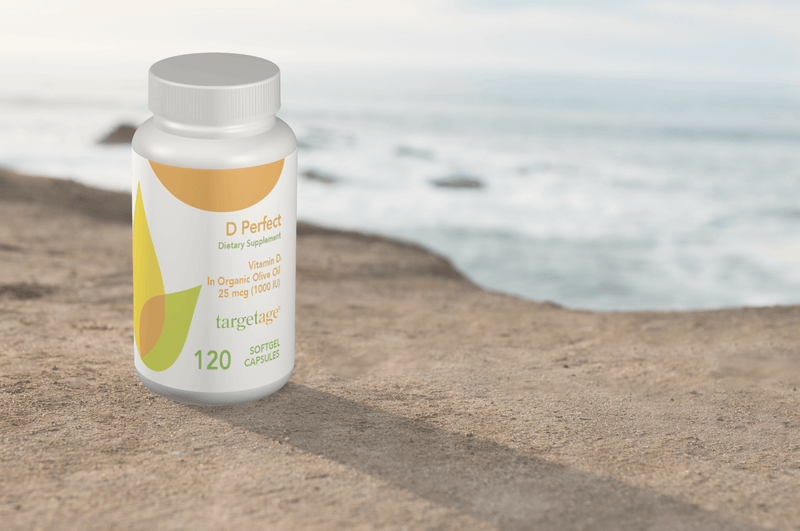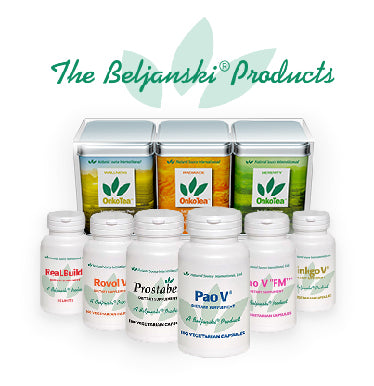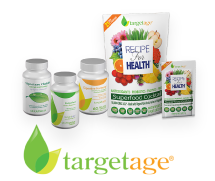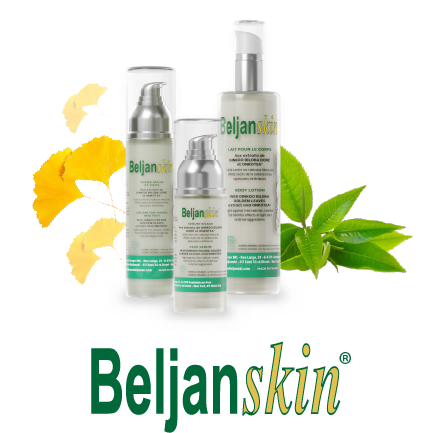
Should We All Be Taking Vitamin D?
Vitamin D: A Message from Sylvie Beljanski
It is time to get out of our homes! Smell the roses and face the sun! But is reaching for sunscreen your first reflex?
Well, if you are already experiencing dry skin, some acne flare-ups, hair thinning and nail brittleness, maybe you should hold the tube and think twice before spreading the cream all over, as those symptoms are often associated with low vitamin D. Many of us emerge from the winter months with some sort of vit D deficiency, and make up for it with the first rays of summer. But this year is different: if you are- or have been for several long weeks- shielding and not getting sunlight, you may be more deficient than usual, and with COVID-19 still a potential risk, your needs may also be higher than usual.
As Professor Rose Anne Kenny said, speaking of a recent study published in the Irish Medical Journal: ”Though we do not know specifically of the role of vitamin D in COVID-19 infections, given its wider implications for improving immune responses and clear evidence for bone and muscle health, those cocooning and other at-risk cohorts should ensure they have an adequate intake of vitamin D.” (1)
Should We All Take Vitamin D?
As for everything else, seemingly, the scientific experts are divided. Since many clinical trails are sponsored by pharmaceutical companies, they are designed with a built-in bias to yield results that will yield results that will discourage the population to use dietary supplements. A 2018 study conducted at Massachusetts General Hospital concluded that vitamin D supplementation offered no health benefits, specifically in regard to heart disease and cancer. (Yet, buried in the data was the indication that Vitamin D supplementation in African-Americans reduced cancer risk by 23%). (2) Meanwhile, some other scientists are presenting vitamin D as a cure for all. (3)
The fact is that as many of us are lacking the sunshine exposure needed to produce enough vitamin D to cover our needs. Some recent research is suggesting that those with vitamin D deficiency are at greater risk to get infected (specifically respiratory infections) from the coronavirus (COVID-19). (4) Indeed, vitamin D deficiency has been found to contribute to acute respiratory distress syndrome; and case-fatality rates increase with age and with chronic disease comorbidity, both conditions being linked to lower vitamin D levels. (5)
Vitamin D is both a vitamin and a hormone and can be synthesized in the skin though sunlight exposure. Other sources are foods or dietary supplements. Vitamin D is needed for healthy bones, teeth and muscles. It also plays an important role in regulating some minerals in our body such as calcium and phosphate. According to WebMD, there is “mounting evidence that links low levels of the vitamin to an increased risk of type 1 diabetes, muscle and bone pain, and, perhaps more serious, cancers of the breast, colon, prostate, ovaries, esophagus, and lymphatic system.”
About 15 minutes of sun exposure per day is what many experts say is sufficient for vitamin D intake. But this vague recommendation does not take into account how much skin is being covered by clothing or sunscreen (it has been reported that an SPF of 30 can reduce the body’s ability to synthesize vitamin D by 95%). Those with darker skin may need double or triple the sun exposure to synthesize the same amount of vitamin D, as melanin inhibits the vitamin’s production. They may be therefore at an even greater risk of suffering from vitamin D deficiency.
Besides Sun, Where Can I Get Some Vitamin D?
It's difficult to get enough vitamin D from food alone. Vitamin D is found in modest amounts in some foods such as oily fish (salmon, sardines, mackerels), red meat, and egg yolks. Vitamin D is also often added to cereals, dairy, plant milks and orange juice. But unless you eat very large quantities of those (which would be not recommended for heart health), food alone will not cover your needs for vitamin D.
Should I Supplement?
Calls are now being made everywhere to consider vitamin D as a possible therapeutic option for treatment of the virus, or at least, as a preventative measure. The Irish Medical Journal is recommending immediate vitamin D supplementation for those who are most at risk, namely those in hospital, nursing homes, or generally speaking, our elderly population. Public health guidelines in England state that people at risk of vitamin D deficiency (meaning everybody who has been confined for an extended period of time) should take a minimum supplementation of 10 micrograms of vitamin D all year around. In the US, researchers studying patients who have already been infected with the coronavirus have recommended a very high dose of vitamin D for the first few weeks of infection (10,000 IU/day). The goal is to raise rapidly their 25(OH)D concentrations. Then follow by 5000 IU/day in order to raise 25(OH)D concentrations above 40-60 ng/mL (100-150 nmol/L). Personally, I go with one capsule of 25 microgram of D3 in organic olive oil, for best absorption, not as a curative against the virus, or even as a preventive, but because I am a woman over sixty, and I don’t want to emerge from this pandemic with fragile bones, dry skin showing fine lines and thinning hair.
What is the Best Form of Vitamin D for Supplementation?
Vitamin D2 is produced by plants, and is the form often found in fortified foods. Vitamin D3 is the one naturally made by your skin under the sun and the form generally recommended for supplementation. It's important to not overdo vitamin D supplements since taking unsafe amounts of it can negatively impact your health, leading to many side effects, including kidney problems, kidney stones, or hypercalcemia (a toxic condition where there is too much calcium in the blood). 600 IU (15 mcg) to 1200 IU (30 mcg) should cover most adults’ needs.
If you have questions and want personalized help, you can access our health coaching services as well by clicking here.
Stay safe, stay healthy,





